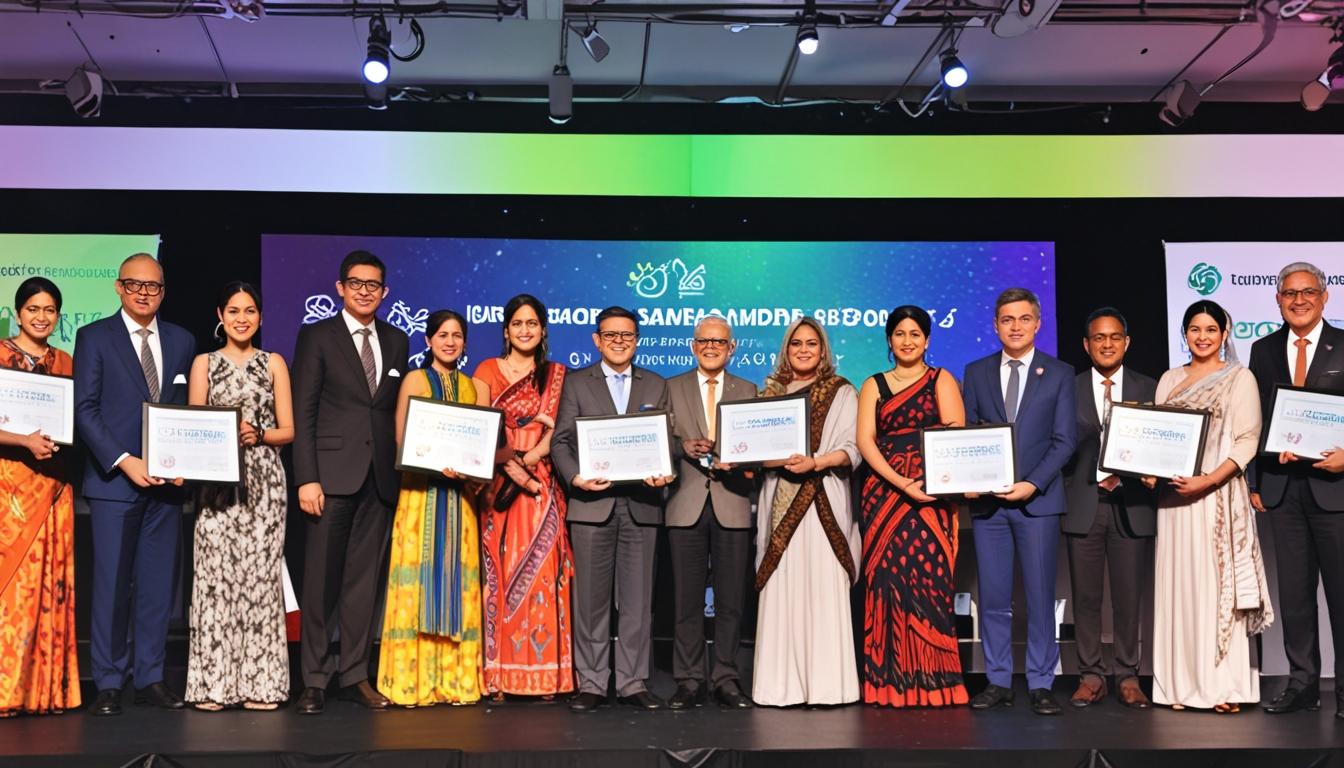New Delhi: The Foundation for MSME Clusters and CITI celebrated responsible business in textiles at the 8th FMC Award, recognising organisations promoting sustainable practices among micro, small, and medium enterprises. Initiatives showcased included environmental management and textile recycling efforts that benefit numerous MSMEs across India.
The Foundation for MSME Clusters (FMC), in collaboration with the Confederation of Indian Textile Industry (CITI), hosted the 8th FMC Award for Responsible Business Membership Organizations (BMOs) within the textiles and apparel sectors on 20 October 2023 at Bharat Mandapam, New Delhi. The event highlighted the importance of sustainability and responsible business practices in the micro, small, and medium enterprises (MSME) ecosystem.
“The FMC Award for Responsible BMOs recognises the critical role of Business Membership Organizations in driving sustainable and inclusive growth. By promoting best practices in environmental stewardship, social impact, and governance, these awards encourage BMOs to be catalysts for transformation in the MSME sector. We are proud to honour organizations that exemplify leadership in responsible business, paving the way for a more resilient and sustainable future,” stated Amit Pande, Chief Operating Officer of FMC, during the ceremony.
This year’s awards attracted over 130 BMOs, which collectively represent approximately 40,000 MSMEs, competing for recognition that aims to disseminate Responsible Business Promotion Case Studies to a broad audience in the textiles and apparel sectors.
Among the distinguished attendees, the Hon’ble Minister of State for Textiles, Mr. Pabitra Margherita, served as the Chief Guest of the event, acknowledging the vital contributions of various organisations within the industry.
The Haryana Environmental Management Society (HEMS), established in 2004 and representing 4,550 industrial units across Haryana, received the award for “Promoting Green Environment” at the National/State/Regional level. HEMS has been instrumental in enhancing environmental awareness, promoting sustainable waste management, and implementing eco-friendly industrial practices. Key initiatives by HEMS include membership drives, environmental education programmes, health check-ups, blood donation camps, and educational competitions focused on sustainability. Notably, the organisation established a Common Treatment, Storage, and Disposal Facility (TSDF) in Village Pali, District Faridabad, to address the pressing issue of industrial hazardous waste management, facilitating safe and eco-friendly disposal methods that have benefited numerous industries in Haryana.
In the category of “Promoting Social Issues” at the National/State/Regional level, the Indian Textile Accessories and Machinery Manufacturers Association (ITAMMA) was recognised for its innovative initiatives. Founded in 1943 in Maharashtra, ITAMMA represents 405 enterprises and has launched the B.K. Mehta Technology Networking Mission – 2030 aimed at revolutionising textile engineering. This initiative fosters collaboration between industry and academia, focusing on innovation, project commercialisation, funding opportunities, and job creation, thereby enhancing India’s role in textile technology.
At the district or cluster level, the Jayadev Banana Farmers and Artisans Association was awarded for its project “Banana Fibre and Bio-Fertiliser”, which promotes the reduction of synthetic yarn usage and chemical fertilizers through sustainable practices. Additionally, the Nitya Sangha Mahila SHG Cooperative Society was awarded for its efforts in women empowerment facilitated by bank loans to self-help groups.
Further underscoring efforts in sustainability, the FMC is collaborating with the European Union’s Switch Asia programme to implement a Textile Recycling Initiative aimed at improving resource efficiency and environmental responsibility in India’s MSME sector. The initiative focuses on enhancing sustainability within the textile recycling clusters, particularly in Panipat, Bhojpur, and Amroha, where India processes approximately 2 million tons of textile waste annually, with about 60% of that waste being handled in these areas. This project aspires to position Panipat as a global hub for sustainable textiles, introducing measures such as a Digital Product Passport for better tracking of textile waste flows and preventing greenwashing. The initiative will also promote technology upgrades, skill enhancement, and green financing solutions, benefiting around 14,800 MSMEs and approximately 250,000 workers.
In another collaborative project supported by HSBC, FMC is working towards decarbonisation and promoting green business models in Panipat, with a focus on traceability and resource efficiency to improve profitability for MSMEs within the textile recycling sphere.
Source: Noah Wire Services



